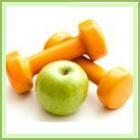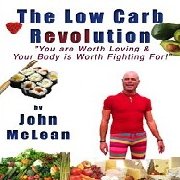Lose Weight
![]() Calories in Food
Calories in Food
![]() Calories in Dairy
Calories in Dairy
![]() Calories in Swiss Cheese
Calories in Swiss Cheese
Calories in Swiss Cheese, Swiss Cheese Nutrition Facts
How many calories in Swiss cheese? See below, the Swiss cheese calories for the different serving sizes. We provide you with Swiss cheese nutrition facts and the health benefits of Swiss cheese to help you lose weight and eat a healthy diet.
So called Swiss cheese isn’t Swiss at all. It’s a generic name used in the United States for cheeses that look like Emmental. Emmental cheese is full of very large holes. Swiss cheese is made from pasteurised cow’s milk.
It is reasonably high in fat, although not as high as some cheeses, with approx. 24g per 100g. Sodium levels though are very high. Reduced fat varieties are available.

It provides a good source of vitamins A, B1-B3, B5, B6, B12, calcium, protein, phosphorus, zinc and selenium.
Swiss cheese is great for building healthy teeth and bones. Other Swiss cheese benefits are thought to include helping lower your blood pressure.
Compare calories in Swiss cheese with the other calories in cheese and dairy products.
Calories in Swiss Cheese
Refuse: 0%| Serving Size | Calories per Serving |
| 100 grams | 380 kcal (1591 kJ) |
| 1 cup, diced, 132 grams | 502 kcal (2100 kJ) |
| 1 cup, melted, 244 grams | 927 kcal (3882 kJ) |
| 1 cup, shredded, 108 grams | 410 kcal (1718 kJ) |
| 1 oz, 28.35 grams | 108 kcal (451 kJ) |
| 1 cubic inch, 15 grams | 57 kcal (239 kJ) |
| 1 slice (1 oz), 28 grams | 106 kcal (445 kJ) |
Swiss Cheese, Low Fat
Refuse: 0%| Serving Size | Calories per Serving |
| 100 grams | 173 kcal (724 kJ) |
| 1 cup, diced, 132 grams | 228 kcal (956 kJ) |
| 1 cup, shredded, 108 grams | 187 kcal (782 kJ) |
| 1 cubic inch, 15 grams | 26 kcal (109 kJ) |
| 1 slice (1 oz), 28 grams | 48 kcal (203 kJ) |
Swiss Cheese, Low Sodium
Refuse: 0%| Serving Size | Calories per Serving |
| 100 grams | 374 kcal (1564 kJ) |
| 1 cup, diced, 132 grams | 494 kcal (2064 kJ) |
| 1 cup, shredded, 108 grams | 404 kcal (1689 kJ) |
| 1 cubic inch, 15 grams | 56 kcal (235 kJ) |
| 1 slice (1 oz), 28 grams | 105 kcal (438 kJ) |
Swiss Cheese Nutritional Information
| Nutritional value per 100 g (3.5 oz) | |
|---|---|
| Proximates: | |
| Water | 37.12 g |
| Energy | 1591 kJ (380 kcal) |
| Carbohydrates | 5.38 g |
| Sugars | 1.32 g |
| Fat | 27.80 g |
| Protein | 26.93 g |
| Minerals: | |
| Calcium, Ca | 791 mg (79 %) |
| Iron, Fe | 0.20 mg (1 %) |
| Magnesium, Mg | 38 mg (10 %) |
| Phosphorus, P | 567 mg (57 %) |
| Potassium, K | 77 mg (2 %) |
| Zinc, Zn | 4.36 mg (29 %) |
| Copper, Cu | 0.043 mg (2 %) |
| Manganese, Mn | 0.005 mg (0.3 %) |
| Selenium, Se | 18.2 mcg (26 %) |
| Vitamins: | |
| Thiamine (Vit. B1) | 0.063 mg (4 %) |
| Riboflavin (Vit. B2) | 0.296 mg (17 %) |
| Niacin (Vit. B3) | 0.092 mg (0.5 %) |
| Pantothenic acid (B5) | 0.429 mg (4 %) |
| Vitamin B6 | 0.083 mg (4 %) |
| Folate (Vit. B9) | 6 mcg (1.5 %) |
| Vitamin B12 | 3.34 mcg (56 %) |
| Vitamin A | 830 IU (17 %) |
| Vitamin E | 0.38 mg (2 %) |
| Vitamin D | 20 IU (5 %) |
| Vitamin K | 2.5 mcg (3 %) |
| Percentages are relative to US Recommended Daily Intake (RDI) for adults. | |
Author: Lana Soko
You Might Also Like:
Like This Page?
|
Share This Page:
|
Search Our Site:

Free E-Book:
We Recommend:
Looking to get your body into great shape? Get the very best results for your efforts and money! Save your valuable time from surfing the internet. These are theBestselling Weight Loss Programs

Programs that work and have thousands of satisfied customers worldwide!

 |




